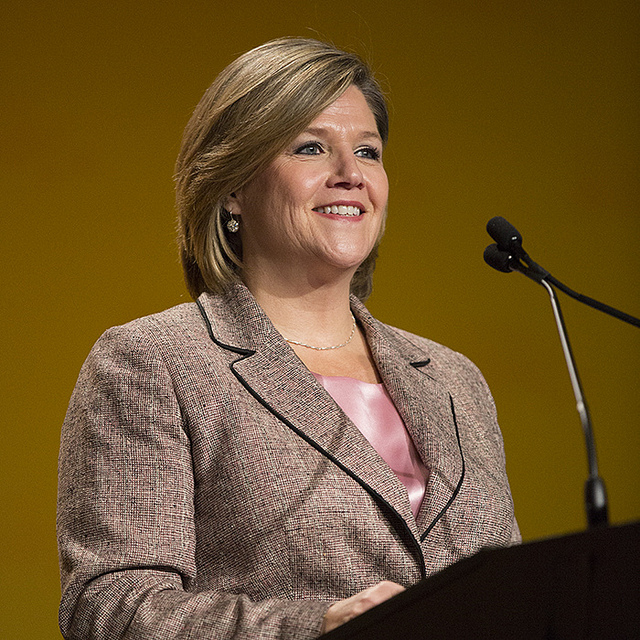Please support our coverage of democratic movements and become a monthly supporter of rabble.ca.
It’s a news story as predictable as Easter pilgrims in Jerusalem or Rob Ford saying he’s going clean. An NDP leader — in this case Andrea Horwath — is being pressed to say whether she would support the Conservatives in a minority situation, and as the script seems to demand, she is giving the wrong answer, sending the wrong signals and causing internal dissent.
On Saturday, Horwath told reporters she wouldn’t support Conservative leader Tim Hudak’s plan to cut 100,000 public service jobs but left the door open to propping up a Conservative government. NDP leaders almost always do this sort of thing because they can’t suggest that they would support Liberals or that there is any similarity between the NDP and Liberals. If they did, they worry they’d lose all support and the party would have no reason to exist.
As a result, they tell the world bravely — and without much public credibility — that there is no difference between the Liberals and Conservatives. And they alienate supporters and potential ones suggesting they might support a Conservative government. The next predictable news story is a sharp drop in public support as progressive voters make up their own minds to vote for the lesser of evils.
There is a way out of this box, but few NDP leaders take it. It’s elegant, simple and truthful, something voters really like. Rather than play coy about which party she would support in a minority setting, Horwath can and should state directly what program she would insist upon in any government. If Andrea Horwath were to tell Ontario the five things she would do as Premier or demand of the next government, voters would be crystal-clear on why voting NDP would benefit them in any scenario and wouldn’t have to guess and second-guess.
This kind of dilemma has plagued other NDP leaders. Something that isn’t often remembered about Jack Layton’s career in federal politics is how public esteem for him grew once he openly embraced coalition politics, after having wrestled himself with the strategic voting dilemma.
Layton crafted a coalition that would have made Liberal Stéphan Dionne Prime Minister in 2008 had the Liberals themselves not gotten cold feet. And in his last campaign, Jack Layton got the upper hand on Liberal leader Michael Ignatieff by openly talking of coalition politics while Ignatieff scoffed.
Andrea Horwath can get the upper hand by doing the same. In the leaders’ debate on Tuesday night, she needs to lay out a case for voting NDP that names the benefits voters will receive for their vote. She needs to state her bottom line clearly: “I will insist on A, B, C, D, and E as Premier, or from any potential Premier. This is what I’m about, this is what the NDP is about.”
That kind of unequivocal message is needed. Equivocation is fatal, and it has been the tendency of NDP leaders faced with the strategic voting dilemma. Stating clearly the benefits of voting NDP is the only way out of the box Andrea Horwath has built for herself. If she fails to do so, it’s easy to guess what the next predictable news story will be.
Ish Theilheimer lives in Golden Lake, Ontario, where he works for his local NDP candidate, Brian Dougherty. He has run for the provincial NDP five times and served as its Vice President and as Advisor to NDP Leader Howard Hampton.
Photo: bcndp/flickr



